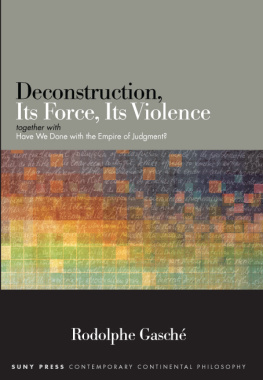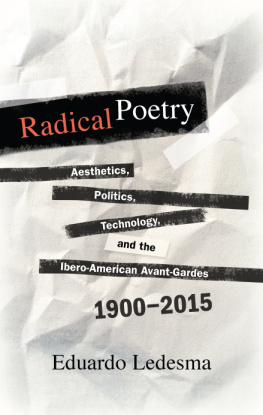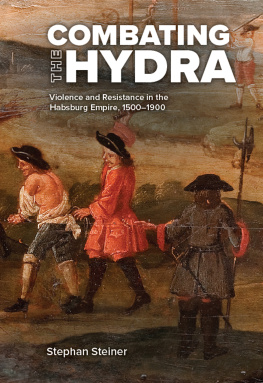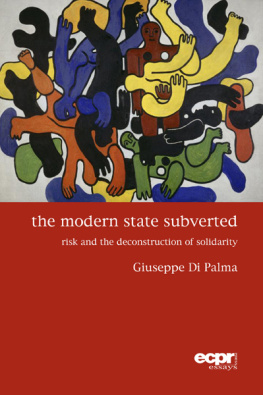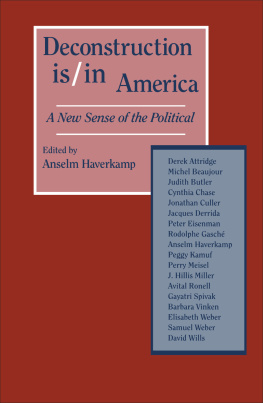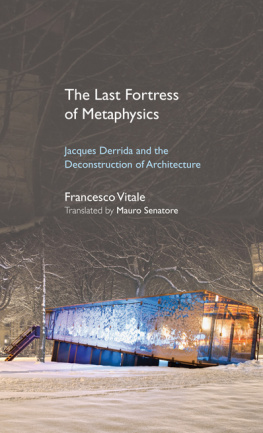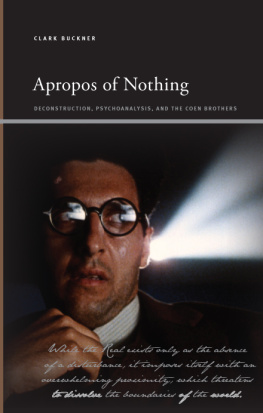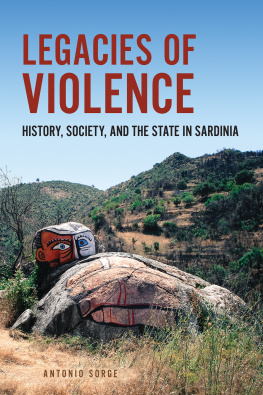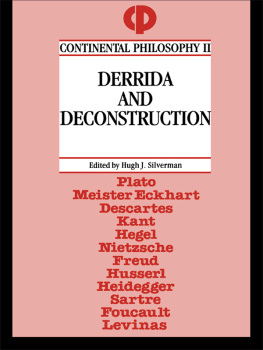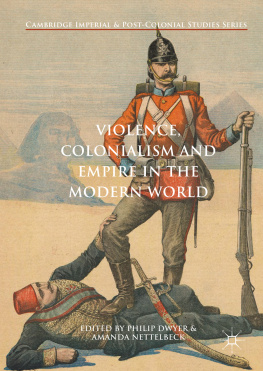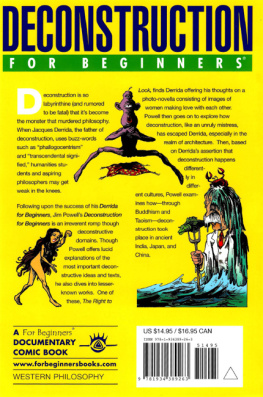State University of New York Press. - Deconstruction, its force, its violence: together with Have we done with the empire of judgment?
Here you can read online State University of New York Press. - Deconstruction, its force, its violence: together with Have we done with the empire of judgment? full text of the book (entire story) in english for free. Download pdf and epub, get meaning, cover and reviews about this ebook. City: New York;Albany, year: 2016;2015, publisher: State University of New York Press, genre: Romance novel. Description of the work, (preface) as well as reviews are available. Best literature library LitArk.com created for fans of good reading and offers a wide selection of genres:
Romance novel
Science fiction
Adventure
Detective
Science
History
Home and family
Prose
Art
Politics
Computer
Non-fiction
Religion
Business
Children
Humor
Choose a favorite category and find really read worthwhile books. Enjoy immersion in the world of imagination, feel the emotions of the characters or learn something new for yourself, make an fascinating discovery.
- Book:Deconstruction, its force, its violence: together with Have we done with the empire of judgment?
- Author:
- Publisher:State University of New York Press
- Genre:
- Year:2016;2015
- City:New York;Albany
- Rating:4 / 5
- Favourites:Add to favourites
- Your mark:
- 80
- 1
- 2
- 3
- 4
- 5
Deconstruction, its force, its violence: together with Have we done with the empire of judgment?: summary, description and annotation
We offer to read an annotation, description, summary or preface (depends on what the author of the book "Deconstruction, its force, its violence: together with Have we done with the empire of judgment?" wrote himself). If you haven't found the necessary information about the book — write in the comments, we will try to find it.
State University of New York Press.: author's other books
Who wrote Deconstruction, its force, its violence: together with Have we done with the empire of judgment?? Find out the surname, the name of the author of the book and a list of all author's works by series.
Deconstruction, its force, its violence: together with Have we done with the empire of judgment? — read online for free the complete book (whole text) full work
Below is the text of the book, divided by pages. System saving the place of the last page read, allows you to conveniently read the book "Deconstruction, its force, its violence: together with Have we done with the empire of judgment?" online for free, without having to search again every time where you left off. Put a bookmark, and you can go to the page where you finished reading at any time.
Font size:
Interval:
Bookmark:

Its Force, Its Violence
SUNY SERIES IN
CONTEMPORARY CONTINENTAL PHILOSOPHY
Dennis J. Schmidt, editor
Its Force, Its Violence
together with
Have We Done with
the Empire of Judgment?
Rodolphe Gasch
Published by
S TATE U NIVERSITY OF N EW Y ORK P RESS , A LBANY
2016 State University of New York
All rights reserved
Printed in the United States of America
No part of this book may be used or reproduced in any manner whatsoever without written permission. No part of this book may be stored in a retrieval system or transmitted in any form or by any means including electronic, electrostatic, magnetic tape, mechanical, photocopying, recording, or otherwise without the prior permission in writing of the publisher.
For information, contact
S TATE U NIVERSITY OF N EW Y ORK P RESS , A LBANY , NY
www.sunypress.edu
Production and book design, Laurie D. Searl
Marketing, Fran Keneston
Library of Congress Cataloging-in-Publication Data
Gasch, Rodolphe.
Deconstruction, its force, its violence : together with Have we done with the empire of judgment? / Rodolphe Gasch.
pages cm. (SUNY series in contemporary Continental philosophy)
Includes bibliographical references and index.
ISBN 978-1-4384-6001-7 (hardcover : alk. paper)
ISBN 978-1-4384-6002-4 (e-book : alk. paper)
1. Derrida, Jacques. 2. Deconstruction. I. Title. II. Title: Have we done with the empire of judgment?
B2430.D484G358 2015
149.97dc23
2015014259
10 9 8 7 6 5 4 3 2 1
Appendix
Have We Done with the Empire of Judgment?
The first three essays collected in this book correspond to the three seminar lectures that I presented in July 2014 at the Collegium Phaenomenologicum in Citta di Castello, Umbria, Italy, devoted to the theme Law and Violence: Hegel, Arendt, Derrida. I thank Maria del Rosario Acosta for the invitation that provided me with the long-awaited opportunity to address the issues of force, possibility, and violence in the context of an attempt to rethink the concept of deconstruction. A first version of the third essay, The Violence of Deconstruction, has been published in Research of Phenomenology , 45 (2015), n. 2, 169190. The essay Have We Done with the Empire of Judgment?, which I presented in November 2014 at Hritages et Survivances de Jacques Derrida, a conference commemorating the tenth anniversary of the death of the philosopher, is included here because it expands on an aspect of Force of Law: The Mystical Foundation of Authority that is broached but not developed in with the opportunity of expanding on the subject in question. The essay has been published in a French translation in the proceedings of the conference.
My thanks go especially to Francesco Vitale, Maria del Rosario Acosta, Maria Mercedes Andrade, Raoul Frauenfelder, Mauro Senatore, Mauricio Gonzalez, Kas Saghafi, and Bret Davis, who, at the Collegium, confronted me with their insightful remarks and questions. I also thank Darin Tenev, Yasunori Suzuki, and Yusuke Myasaki, whose comments and suggestions on The Force of Deconstruction, which I presented at the University of Tokyo on the occasion of the first meeting of the Association for Deconstruction in November 2014, greatly helped me in finalizing several points in the text. Last but not least, my thanks go to Donald Cross for his judicious and meticulous editing of the manuscript. Without his exceptional skill and care, this book would not have seen the light of day so soon.
Commonly, the point of a preface is to set forth the purpose and scope of a work, and, as such, its aim is to eclipse itself before the work announced once that task has been accomplished according to its formal exigencies. A preface, therefore, is not the place to propose new developments that might restrict the thrust of the work that it introduces or to extend beyond the results at which the body of the work arrives. Yet, this is what I intend to do in these few prefatory pages by offering in a somewhat programmatic fashion an additional perspective on how deconstruction in Derridas thought is to be understood, which suggests that the reflections on deconstruction that follow should be taken a step further. In this sense, this preface is also a postface.
Initially, Derrida did not identify his own way of thinking as deconstruction. On the contrary, the term deconstruction was used by others to identify the intention and procedure presumed to be involved in his thought and work. Indeed, as a translation of the Husserlian notion of Abbau and Heideggers concept of Destruktion , deconstruction names a gesture of thought that aims to exhibit essential eidetic structures of consciousness covered over by layers of historical sedimentations or the phenomenon par excellence, that is, Being, which withstands self-presentation by withdrawing from its own epochal manifestations. Derridas thought is not involved in a similar gesture of reaching back to more originary origins, however abyssal they might turn out to be. Therefore, to apply the notion of deconstruction to Derridas thought is to misinterpret it from the start. As a term given by others to his own reflections on what exceeds all grounds and origins, however, in Of Grammatology Derrida embarks on a sort of reappropriation of the term, notwithstanding its improperness, for his own project. Yet, despite this reappropriation, deconstruction is not given a proper meaning in the context, this time, of what his thought is specifically about. Even where Derrida seems to have made the term his own by reformulating it with an eye on the movements involved in his thinking, there always remains a tension in his work between this notion and the style of his thinking. The debate with this notion never comes to a rest in his work. It is taken up critically again and again, because it remains a name given by others to the walk followed throughout his thinking, which itself withstood the urge of identifying that walk by naming it.
Therefore, I found it fitting to start the following reflections on the relationship between, on the one hand, deconstruction and, on the other, force, possibility, and violence by focusing on an early text in which Derrida does not yet cast the methodological reflection on the procedure involved in his reading and discussion in terms of deconstruction. This text is the still largely overlooked essay Force and Signification (1963), which is the opening of, if not even the programmatic text for, the collection of essays that make up Writing and Difference . Interrupting the flow of his argument concerning Jean Roussets Forme et signification: Essais sur les structures littraires de Corneille Claudel by turning back on the procedure that informs his analyses so faran interruption, furthermore, made only for the republication of the essay in 1967, that is, after he had already reappropriated the term deconstructionDerrida formulates his modus operandi without any recourse to the term deconstruction. Even though this belated, methodological aside anticipates later reflections on deconstruction, the absence of the word deconstruction makes it possible to evaluate Derridas way of thinking in a slightly more nuanced way. By not speaking about deconstruction, it is as if Derrida resists naming his way of thinking and thus protects it from the unifying, homogenizing, and essentializing effect of a catchword.
With this, the stakes of rethinking Derridas mode of thinking and, in the same breath, of deconstruction come into view. Since the publication of Of Grammatology , the term deconstruction has been construed as inseparable from the critical engagement with the logocentrism of metaphysical thought. Thus, the stakes of a reflection on his own way of thinking without recourse to the term deconstruction consists in nothing less than the attempt to resist the identification of deconstruction with its first reappropriation by Derrida himself. Indeed, in Force and Signification, Derrida characterizes the movements of thought that inform his debate with Roussets work as strategic moves necessary to break with the conceptual structure of opposition that prevents Rousset from accomplishing in the end what he sets out to do, namely, to reconceive the literary works inner genesis and creative life. The methodological digression clearly aims at highlighting a kind of thinking that takes issue with the oppositional structure of metaphysical thought in its entirety . By not referring to it as a deconstruction, Derrida emphasizes the thought-character of this different take on the thought of a literary critic, a kind of thinking that itself is no longer simply critical, and in the same breath presents this thinking as one that takes on metaphysical thought precisely insofar as it is dominated or governed by a system of oppositions. Put differently, the stakes involved in momentarily suspending the notion of deconstruction to account for what takes place in the opening essay of Writing and Difference concern the thought-character of the thinking that governs Derridas approach and on whose basis alone the decisive novelty of his intervention in philosophy can be assessed.
Font size:
Interval:
Bookmark:
Similar books «Deconstruction, its force, its violence: together with Have we done with the empire of judgment?»
Look at similar books to Deconstruction, its force, its violence: together with Have we done with the empire of judgment?. We have selected literature similar in name and meaning in the hope of providing readers with more options to find new, interesting, not yet read works.
Discussion, reviews of the book Deconstruction, its force, its violence: together with Have we done with the empire of judgment? and just readers' own opinions. Leave your comments, write what you think about the work, its meaning or the main characters. Specify what exactly you liked and what you didn't like, and why you think so.

